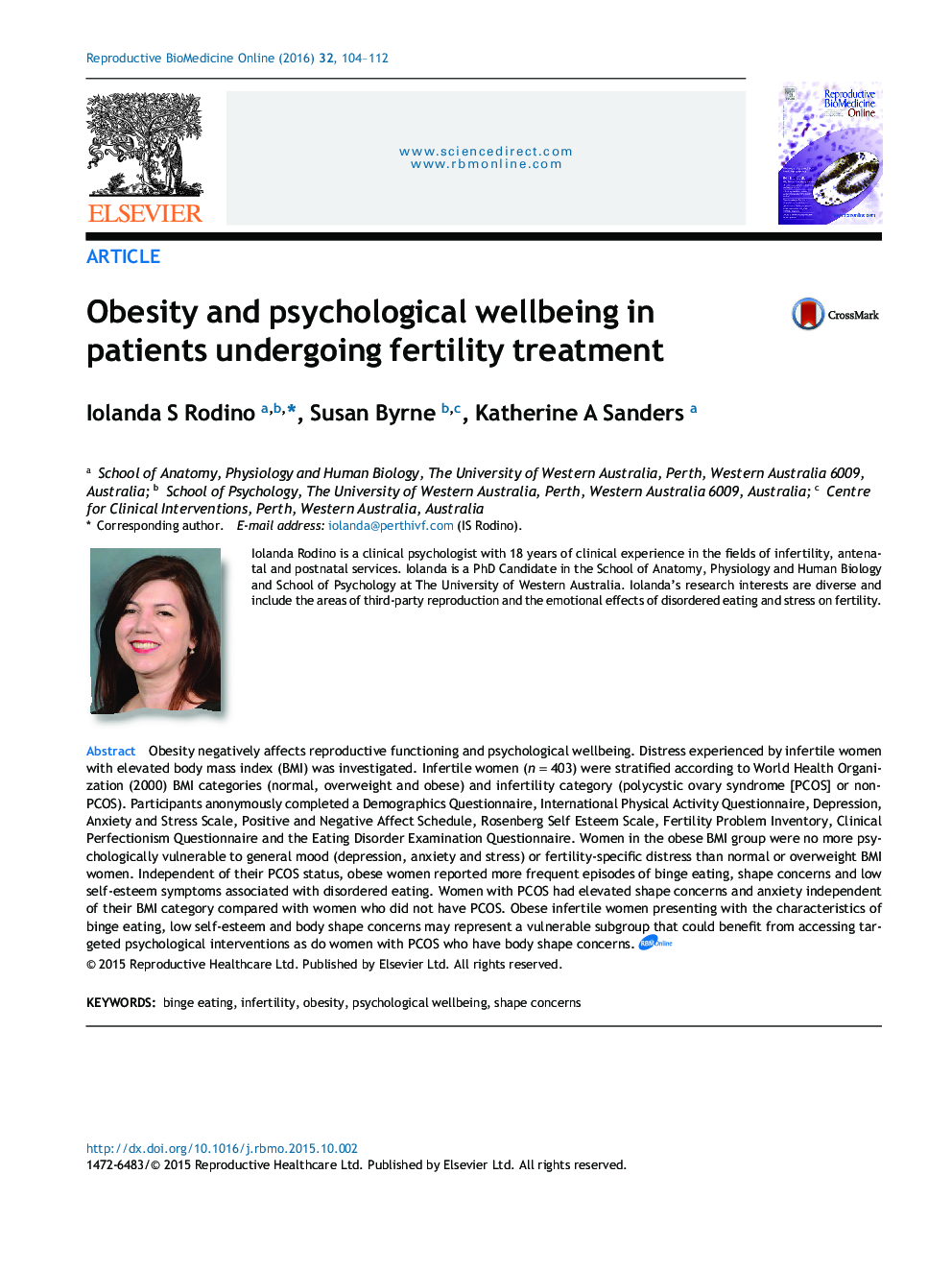| Article ID | Journal | Published Year | Pages | File Type |
|---|---|---|---|---|
| 6188539 | Reproductive BioMedicine Online | 2016 | 9 Pages |
Obesity negatively affects reproductive functioning and psychological wellbeing. Distress experienced by infertile women with elevated body mass index (BMI) was investigated. Infertile women (n = 403) were stratified according to World Health Organization (2000) BMI categories (normal, overweight and obese) and infertility category (polycystic ovary syndrome [PCOS] or non-PCOS). Participants anonymously completed a Demographics Questionnaire, International Physical Activity Questionnaire, Depression, Anxiety and Stress Scale, Positive and Negative Affect Schedule, Rosenberg Self Esteem Scale, Fertility Problem Inventory, Clinical Perfectionism Questionnaire and the Eating Disorder Examination Questionnaire. Women in the obese BMI group were no more psychologically vulnerable to general mood (depression, anxiety and stress) or fertility-specific distress than normal or overweight BMI women. Independent of their PCOS status, obese women reported more frequent episodes of binge eating, shape concerns and low self-esteem symptoms associated with disordered eating. Women with PCOS had elevated shape concerns and anxiety independent of their BMI category compared with women who did not have PCOS. Obese infertile women presenting with the characteristics of binge eating, low self-esteem and body shape concerns may represent a vulnerable subgroup that could benefit from accessing targeted psychological interventions as do women with PCOS who have body shape concerns.
